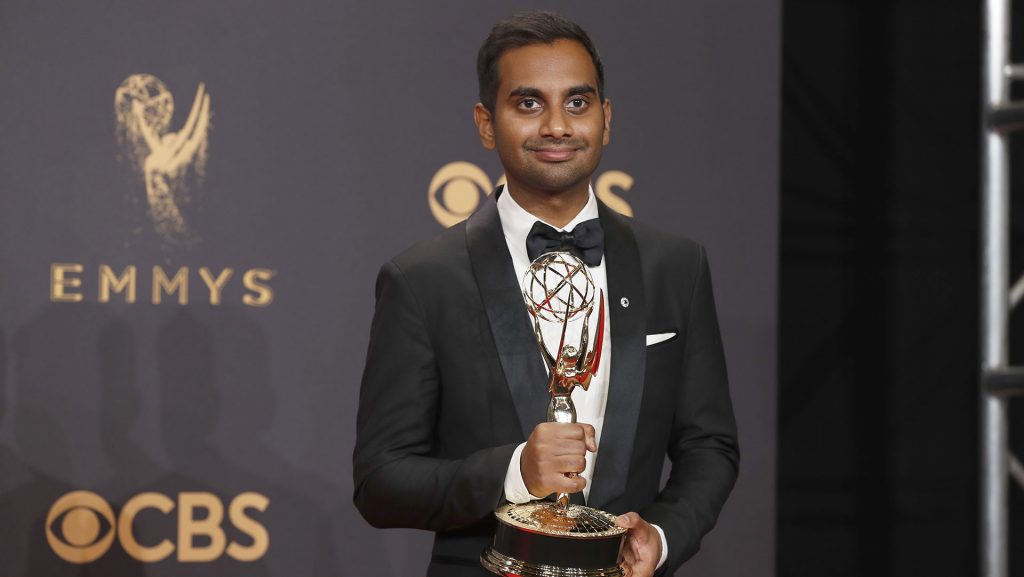Not many people had heard of the website Babe.net before they published a woman’s account of her date with actor Aziz Ansari, which she called the “worst night” of her life. The anonymous “Grace” went out with Ansari after first meeting him at an Emmys after-party. When they went back to his apartment, Grace said, he repeatedly coerced her into sexual acts, despite her allegedly telling him, “Whoa, let’s relax for a sec, let’s chill,” “Next time,” and “I don’t want to feel forced.” Ansari was concerned by Grace’s account but seems to maintain the encounter was consensual.
Still, the article was poorly executed, including trivial details (Grace’s outfit, her protesting of white wine, Taylor Swift’s address) that made the piece read like a shallow gossip column, not a nuanced account of sexual misconduct. Because Grace’s story was not one of classic workplace harassment or brute physical force, and because she did eventually “give in” to some of Ansari’s advances, it was imperative that her account was reported with due diligence. Since it wasn’t, the media frenzy following its publication has been even more visceral and victim-blaming.
RELATED: Smith: Responding to sexual assault
Social critic Caitlin Flanagan penned a condescending essay for The Atlantic in which she postulated that Grace was just angry she didn’t “become the famous man’s girlfriend” and therefore joined a “hit squad of privileged young white women [opening fire] on brown-skinned men.” CNN reporter Ashleigh Banfield slammed Grace in a nearly five-minute segment for not leaving Ansari’s apartment after “continually protesting his moves.” And so, sadly but predictably, a sloppily reported but important story has sent us back into a cultural spiral of demonizing victims of sexual misconduct as vengeful man-haters and blaming “imperfect” victims for not leaving sooner.
I feel this story is one of the most critical revelations of the #MeToo movement. Especially living as a college student, where hookups between young people often end in hurt and confusion, the perpetrators seldom resemble the Harvey Weinsteins and Kevin Spaceys of the world. Rather, I see many of my peers in Grace, who are hesitant to label their experience as sexual assault; for they, too, may not have been “strong” enough to “slap” their dates, as Flanagan suggests, or “stand up sooner,” as Banfield berated Grace to do the next time she has a “bad date.”
For every story of barefaced sexual violence, it seems there are two more like this one — in which the victims begin by rejecting the perpetrators’ advances but becomes passive when they realize their complaints will not be respected. In which victims feel they were clear about being uncomfortable but the perpetrators respond to their eventual outburst in a surprise that may or may not be genuine. Too often, the lines of consent are blurred for the parties involved, and there’s no doubt that complicates these conversations.
RELATED: Kumar: A wider perspective on sexual harassment, assault
But I reject the assertion by Banfield and others that stories like this one undermine the #MeToo movement. When critics recognize that Grace and victims like her “continually protested” their partner’s advances, yet go on to blame them for not leaving sooner or slapping them, it becomes glaringly clear that our cultural shift on sexual misconduct has barely scratched the surface. Consent must be affirmative and mutual, and we need to do better in defining what that means. The standard for acceptable sexual behavior cannot be that the other person didn’t yell or hit them, and someone blatantly ignoring their partner’s objections should not be callously dismissed as a “bad date.” By retreating to close-minded and self-righteous attacks on “imperfect” victims, we fail them, preserving a cultural attitude that forces them to fight back in the first place.



